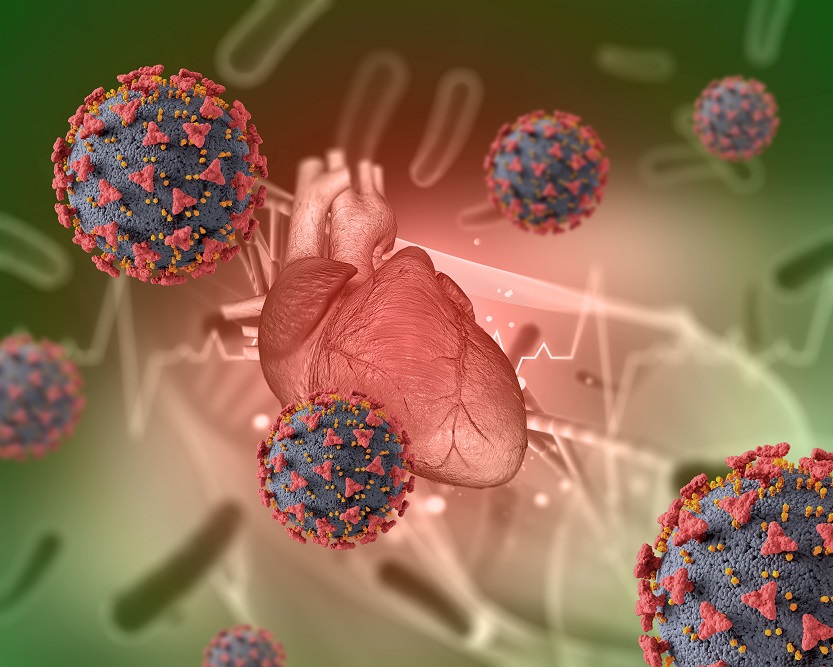Unraveling Autoimmune Diseases: What Triggers the Immune System to Attack the Body?

Autoimmune diseases have long baffled medical professionals and researchers, as they pose a unique challenge in understanding why the immune system, designed to protect the body, turns against it. This intricate interplay of immune dysfunction and self-attack leads to a myriad of conditions collectively known as autoimmune diseases. Unraveling the mysteries behind these diseases is crucial for developing effective treatments and improving the quality of life for millions of affected individuals.
Understanding the Immune System
To comprehend how autoimmune diseases arise, it’s essential to first grasp the fundamental functions of the immune system. The immune system is a complex network of cells, tissues, and organs that work together to defend the body against harmful invaders, such as bacteria, viruses, and other pathogens. This defense mechanism relies on the ability to recognize and eliminate foreign substances while maintaining tolerance to the body’s cells and tissues.
Autoimmunity Gone Awry
In autoimmune diseases, this delicate balance is disrupted, leading to a breakdown of self-tolerance. Instead of distinguishing between self and non-self, the immune system erroneously identifies the body’s cells as foreign invaders and launches an attack. The result is chronic inflammation and damage to tissues and organs, causing a range of symptoms and health complications.
Genetic Predisposition
One key factor contributing to the development of autoimmune diseases is genetics. Certain individuals may have a genetic predisposition that makes them more susceptible to these conditions. Research has identified specific genes associated with autoimmune diseases, suggesting a hereditary component in their development. However, having a genetic predisposition does not guarantee the onset of an autoimmune disease; environmental triggers also play a crucial role.
Environmental Triggers
While genetics sets the stage, environmental factors often serve as the ignition for autoimmune diseases. Various external triggers can activate or exacerbate the immune response, leading to the initiation of self-attack. Common environmental triggers include infections, exposure to certain chemicals, and hormonal changes. Understanding how these factors interact with the immune system is vital for unraveling the complexities of autoimmune diseases.
Infections as Triggers
Infections, particularly viral and bacterial infections, have been implicated as potential triggers for autoimmune diseases. The theory is that the immune system, while fighting off the infection, may mistakenly target and attack normal cells, setting off an autoimmune response. For example, rheumatic fever, triggered by a streptococcal infection, can lead to the development of rheumatoid arthritis – an autoimmune condition affecting the joints.
Molecular Mimicry
A fascinating concept in the realm of autoimmune diseases is molecular mimicry. This occurs when the proteins of infectious agents share similarities with the body’s proteins. In the process of fighting off the infection, the immune system may become confused and attack both the foreign invaders and the body’s cells, perpetuating autoimmunity. This phenomenon is thought to be involved in conditions such as Guillain-Barré syndrome and systemic lupus erythematosus.
Environmental Toxins and Chemicals
Exposure to certain environmental toxins and chemicals has also been linked to the development of autoimmune diseases. Substances like solvents, pesticides, and heavy metals may trigger an immune response and contribute to the breakdown of self-tolerance. The mechanisms by which these chemicals influence the immune system are complex and not fully understood, but research in this area is shedding light on potential connections.
Hormonal Factors
Hormonal fluctuations play a significant role in autoimmune diseases, as evidenced by the higher prevalence of these conditions in women compared to men. Estrogen, a key female sex hormone, has been implicated in modulating the immune response. Changes in hormone levels, such as those occurring during pregnancy or menopause, can influence the immune system’s behavior and contribute to the onset or exacerbation of autoimmune diseases.
Leaky Gut Syndrome
The gut, often referred to as the “second brain,” plays a crucial role in immune system regulation. The integrity of the leaky gut barrier is essential for preventing the entry of harmful substances into the bloodstream. In conditions like leaky gut syndrome, the permeability of the gut lining is compromised, allowing the passage of undigested food particles and bacteria. This breach can trigger an immune response and, in susceptible individuals, lead to the development of autoimmune diseases.
Stress and Autoimmunity
The mind-body connection is a powerful force, and stress has been identified as a potential trigger for autoimmune diseases. Chronic stress can dysregulate the immune system, promoting inflammation and contributing to the breakdown of self-tolerance. While the precise mechanisms linking stress and autoimmunity are still being explored, managing stress is recognized as an important aspect of comprehensive autoimmune disease care.
The Role of Epigenetics
Epigenetics, the study of changes in gene expression that do not involve alterations to the underlying DNA sequence, is providing new insights into autoimmune diseases. Environmental factors can influence epigenetic modifications, affecting how genes are turned on or off. This dynamic interplay between genetics and the environment highlights the complexity of autoimmune disease development and offers potential avenues for targeted therapeutic interventions.
Common Autoimmune Diseases
There are over 80 known autoimmune diseases, each with its unique set of symptoms and target tissues. Some of the most prevalent autoimmune diseases include rheumatoid arthritis, systemic lupus erythematosus, multiple sclerosis, type 1 diabetes, and Hashimoto’s thyroiditis. While the specific triggers and mechanisms vary, the common thread among these conditions is the immune system’s misdirected attack on the body.
Diagnosis and Treatment
Diagnosing autoimmune diseases can be challenging due to the diversity of symptoms and the overlap with other conditions. Physicians often use a combination of medical history, physical examinations, blood tests, and imaging studies to make an accurate diagnosis. Once diagnosed, treatment strategies aim to modulate the immune response, reduce inflammation, and manage symptoms. Common approaches include immunosuppressive medications, anti-inflammatory drugs, and lifestyle interventions.
The Future of Autoimmune Disease Research
As research into autoimmune diseases advances, discoveries continue to reshape our understanding of these complex conditions. Emerging technologies, such as genomics, proteomics, and advanced imaging techniques, offer unprecedented insights into the molecular and cellular processes underlying autoimmunity. The identification of specific biomarkers and therapeutic targets holds promise for more personalized and effective treatment approaches.
Advancing Autoimmune Research for Targeted Interventions and Personalized Therapies
Unraveling the mysteries of autoimmune diseases requires a multidimensional approach that considers both genetic and environmental factors. The interplay between the immune system and external triggers is intricate, and ongoing research is essential for developing targeted interventions and improving patient outcomes. As our understanding of autoimmunity deepens, the prospect of more precise diagnostics and personalized therapies brings hope to the millions affected by these enigmatic diseases. By bridging the gap between genetics, environment, and immune function, we move closer to a future where autoimmune diseases can be effectively managed if not entirely prevented. Contact Restoration Healthcare at (949) 523-1987 and take the first step towards a healthier, more vibrant future.


